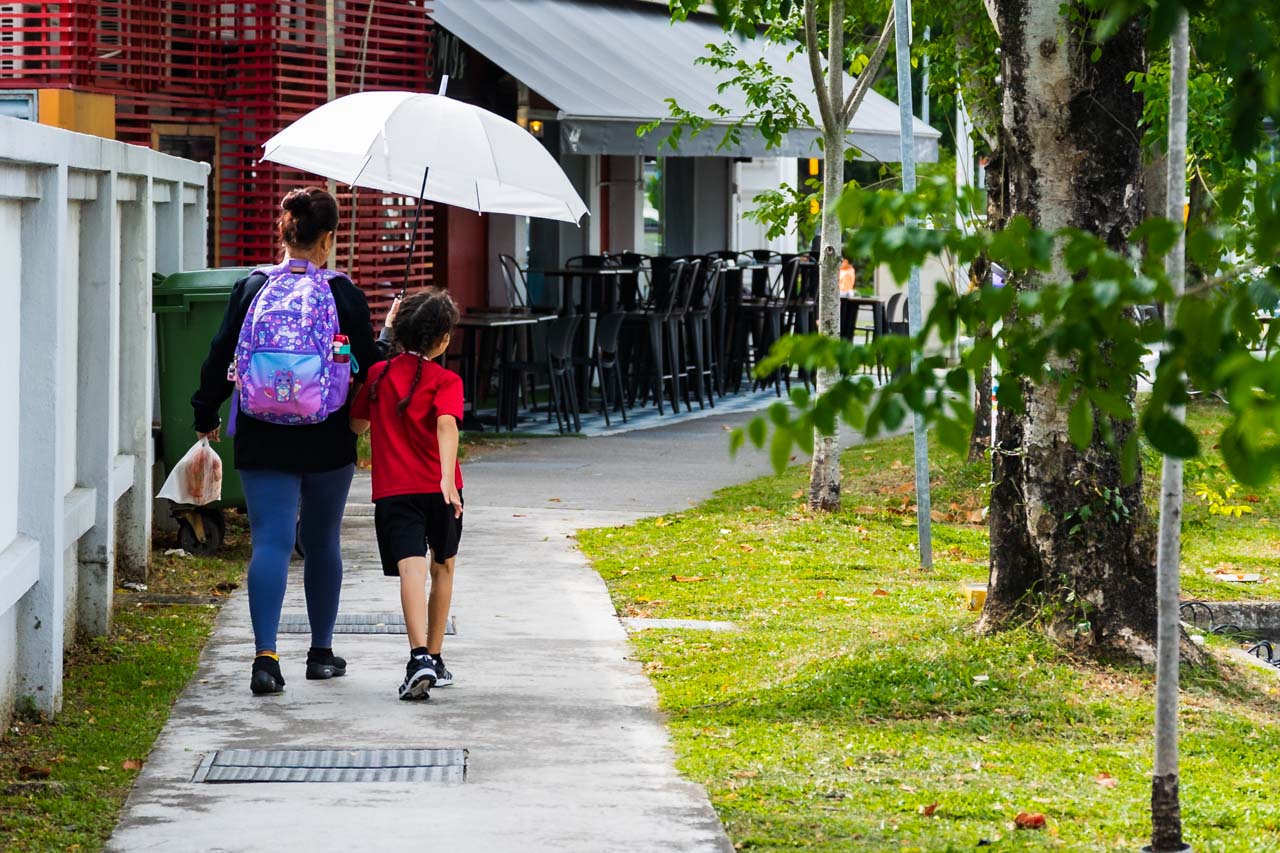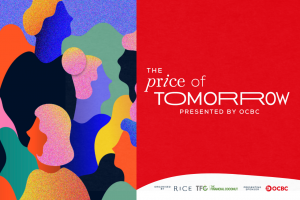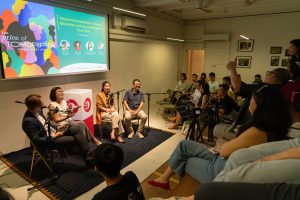Top image: Nicholas Chang / RICE File Photo
A train bogie derails one afternoon, and so do hundreds of parents’ lives.
“What about the PSLE?” was the knee-jerk reaction to the East-West Line disruption that began on September 25th, a day before the first Primary School Leaving Examination (PSLE) paper this year. It pushed parents to scramble for alternative transport arrangements to get their children to school on time.
It’d been a while since I’d thought about PSLE. Now that it was on the front page, I couldn’t help but think how stressed those parents must be, and how much I’d panic if I were in their position. I wondered, though, if my hypothetical anxiety was proportional to the matter at hand—or if I and everyone else still saw PSLE as the bogeyman.
And despite changes purported to make PSLE a less stressful affair, the discussion online seemed to be as if nothing had changed–PSLE is still a pretty big deal.
The new PSLE scoring system is drastically different from the three-digit T-scores of days past. It replaces the three-digit T-scores with one- to two-digit Achievement Level (AL) scores. The changes to the PSLE scoring system were accompanied later by the removal of mid-year exams for all primary and secondary school students. These changes were made in hopes of encouraging students (and parents too, probably) to worry less about their grades.
But it doesn’t seem like parents are any less worried. Parents still engage private enrichment services and throng forums like KiasuParents to keep up with what other parents are doing for their kids–all to be able to give their kids a chance to do well.
Between 12-year-olds flooding the r/SGExams subreddit asking for PSLE help, and parents who attend science workshops to make sure their children are on track with their work, neither particularly scream ‘We’re less stressed’.
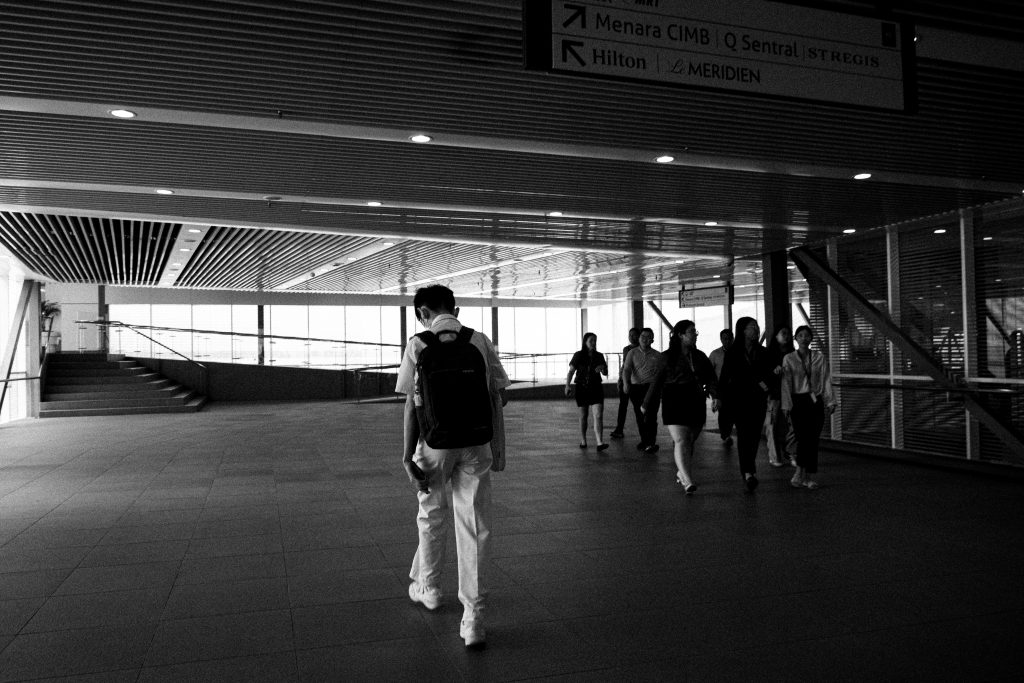
Vaeda Yung, 44, shares stories about how her daughters’ friends go for tuition on a daily basis. Some even plan to add even more classes to their retinue after less than satisfactory prelim results.
I get a chance to talk to Vaeda’s daughter, a Primary 5 student who asks me: “Got people not stressed meh?”
Will parents relax like the Ministry Of Education (MOE) wants them to or will they just keep finding things to worry about?
What They Don’t Teach You in School
Refreshingly, the two mothers I spoke to said they wouldn’t hold it against their kids if they produced less-than-ideal PSLE results. But considering the multiple reports of parents still obsessing over PSLE, they’re probably in the minority.
Though they were a little more relaxed on the academic front, they seemed just as invested overall as their peers in the news. They concern themselves with other aspects of their children’s lives—things like their friendships, temperaments, and interests.
Each parent has their own philosophy towards children’s development. The root of it all is the desire to set their kids up for success.
Katharine, who wants to be known by her first name, says she does care about the school her son gets to attend. However, the 38-year-old clarifies: “When it comes to school choices, it’s not the school’s PSLE outcomes that I’m concerned about. I’m more interested in what opportunities the school has.”
She explains the thought process behind her philosophies towards her son’s education.
“We’re more concerned with the things we can do rather than leaving everything up to the schools,” she says, touching on a common sentiment among hands-on millennial parents.
More of them are looking to expose their children to non-academic experiences in hopes that a diversity of experiences will help them become well-rounded, independent individuals. These experiences include travelling to different countries, or, closer to home, simple life experiences like ordering food in a public eatery; all things you can only do outside of the classroom.
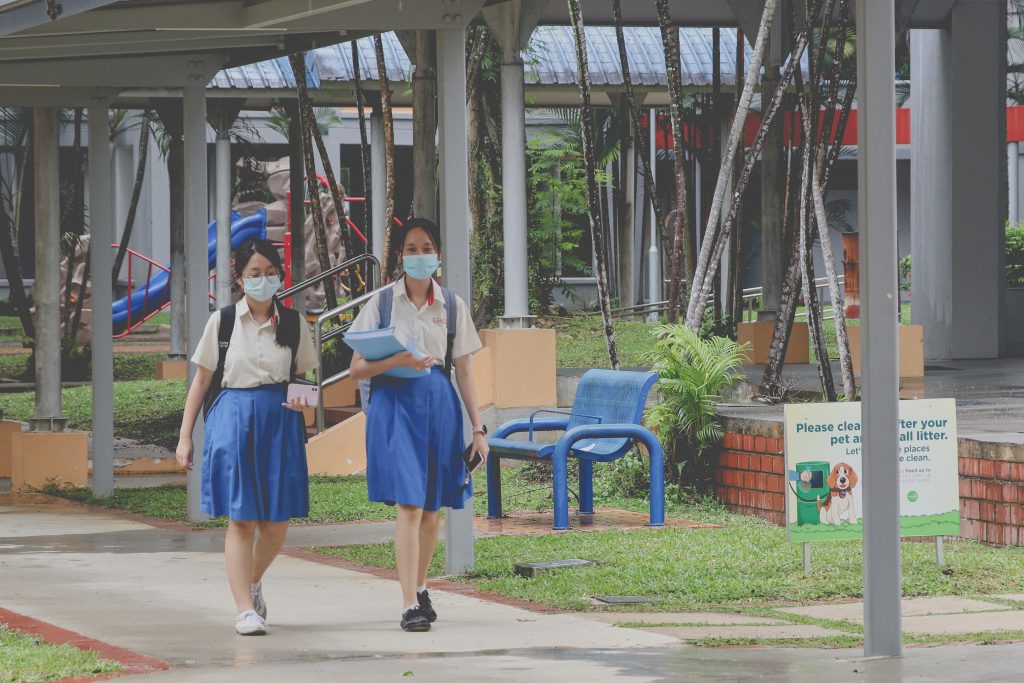
Then there are the parents putting their kids in extra-curriculars ranging from coding camp to modelling school.
The good news we can take away from here is that millennial parents have moved on from tiger parenting. They can appreciate the influence they have on their children’s holistic development—and they’re taking their responsibilities seriously.
But this also means more metrics beyond just the PSLE score. Does your kid have friends? Are they exposed to different cultures? Do they know Python?
What’s Too Much?
Any good parent wants to do right by their child. But when do parents’ efforts cross the line from giving their child a good head start, and start being self-soothing behaviours to quell parental anxieties?
When anxiety that you aren’t doing enough as a parent strikes, the knee-jerk reaction might be to do more.
We already know how extreme the pursuit of academic excellence can get. But parents pursuing holistic development for their children can sometimes also end up overscheduling their children, packing their days full of non-academic enrichment.
Over-preparing and speculating excessively about the future, and taking extreme precautions against failure may signal an unhealthy fear of failure. It might even telegraph insecure thought patterns to your children and render them unable to handle their own setbacks.
It turns out that you can do too much for your child. Parents who find themselves obsessing over their child’s future should, perhaps, take a step back and just let them get to it, Jennifer Breheny Wallace, a parenting researcher, suggests in her book Never Enough: When Achievement Pressure Becomes Toxic—and What We Can Do About It. The instinct to guard against failure is natural, but a measure of introspection is necessary to make sure it doesn’t end up being counterproductive.
It’s understandable that parents want to do as much as they can for their children. Singaporean parents are highly connected with each other, are acutely tuned into what everyone else is up to, and have been pushed to vie for success in a relentless market economy. Plenty of them can attest to feeling like they’re doing something wrong if they don’t keep up.
In turn, they’re more cognizant than ever of disruptive forces that may affect their kids–whether it might be unfriendly job markets, or the tidal wave of the bell curve in school–and may worry that they’re doing their children a disservice by not preparing for it.
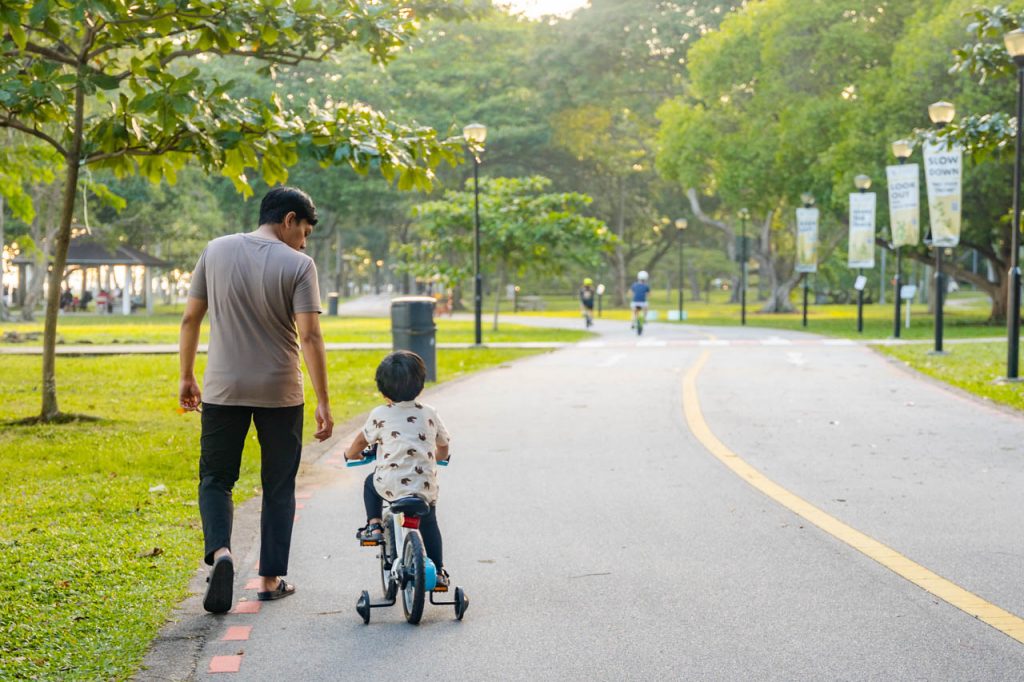
For some parents, the care and effort they pour into their kids also stems from a personal mission to avoid repeating their own parents’ mistakes.
Katharine mentions that her mother didn’t really care what school she attended and let her pick—so she just chose the one closest to her house.
“I wish she had chosen a better school for me,” Katharine remarks.
Vaeda, too, talks about how growing up, her parents spent very little time with her; at least, much less than the dedicated blocks she sets aside to be with her children now.
“Maybe it’s just how things were last time–you know, they’ll just let us run around while they work,” Vaeda offers. Now that it’s her turn to parent, it’s made her think deeply about what she can do differently.
What These Parents Want
Though different parents may choose to emphasise different things in bringing up their kids, there’s a common thread running through what they say. I see it in the parents who might send their children through a gauntlet of enrichment classes, and in Vaeda and Katharine. It’s the desire to set their children up for success—both academic and otherwise.
Worrying after your child just comes with the territory. If PSLE were to be abolished tomorrow, they’d still be worried that they aren’t doing enough for their child to help them grow up well.
“I don’t want my kids to have regrets,” Vaeda says, “so I’ll do my best to help them. But if she doesn’t do well, then let’s just move on.”
Katharine echoes: “Though academic success is still what’s being honoured as the conventional pathway to success, I don’t want my son to feel like a failure if he doesn’t succeed conventionally. I hope he can recognise his own personal abilities, strengths, and interests.”
Katharine and Vaeda remind me of my parents (albeit a lot less gruff). My solidly Gen X parents say things like “As long as you can sustain your lifestyle, go study what you like”, and “Make sure your employer pays you properly”.
Really, as with generations of parents before them, what they’re saying is: I want my child to grow up happy. I want them to be OK.

